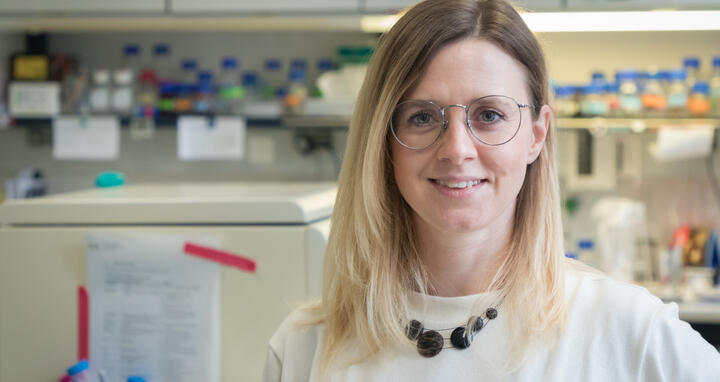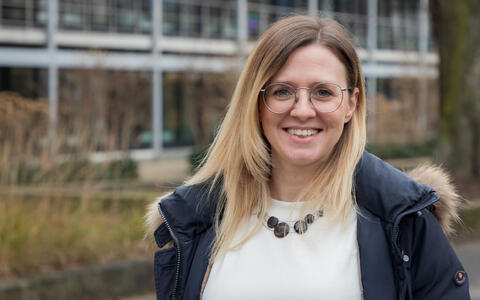Unraveling the mysteries of the heartbeat
The biomechanics of the human and mammalian heart but also those of pythons interest early career scientist Dr. Claudia Crocini. “Cell stiffness plays a major role in many diseases. In cardiomyopathies – heart muscle diseases – the heart can become abnormally stiff or soft and stops contracting properly,” she explains. “Narrowing of the aortic valve, a condition known as aortic stenosis, is also related to the elasticity of heart cells.”
Originally from Italy, Crocini studied biotechnology at the University of Florence, specializing in medicine and pharmacology. She most recently worked as a postdoctoral research at the University of Colorado Boulder, where she mainly used pig tissue samples to study the elasticity of heart cells.
In January 2022, the 35-year-old will begin a two-year Marie Curie Postdoctoral Fellowship in the MDC lab of Professor Michael Gotthardt, whose research specializes in neuromuscular and cardiovascular cell biology. Here Crocini plans to continue her investigation on human cardiomyocytes – the muscles cells of the heart. To accomplish this, she will use induced pluripotent stem (iPS) cells and differentiate them into cardiomyocytes. She hopes to gain a better understanding of one protein in particular, titin.
The largest known protein is the key
“Titin is an extremely fascinating molecule,” Crocini says. “It is the largest protein in mammals, consisting of 33,000 amino acids. When stretched out, the enormous protein is about one micrometer long.” Scientists know that titin acts like a spring in all muscle cells. Through this function it ensures, along with other structural proteins, that the heart muscle expands and contracts. The elasticity of titin itself is apparently crucial to how well the heart contracts and relaxes, Crocini says.
If I can shed light on precisely which changes in titin affect the elasticity of the whole heart, this might lead to new therapeutic options for heart disease.
However, titin’s properties change throughout life. In the embryonic phase, she says, titin is comparatively soft, but becomes stiffer as we age. Various genetic diseases are also associated with changes in this important protein, while at the same time resulting in a cardiomyopathy. Some of its individual amino acids can be modified, as can the spatial shape of the entire protein. “If I can shed light on precisely which changes in titin affect the elasticity of the whole heart, this might lead to new therapeutic options for heart disease,” Crocini says.
Eager to resume in-person congresses
Crocini uses various physical measurement methods to determine the biomechanical properties of proteins and heart cells. She can probe the stiffness and stability of proteins by pulling on their domains with an atomic force microscope. But she also uses a rheometer to measure the stress-strain relationship of cardiac tissue and to gain information about their biomechanical properties.
When asked what drew her to the MDC, Crocini says, “Covid was a bit of a factor. It’s difficult right now to travel in and out of the United States. I wanted to be closer to my family in Italy and was looking for an excellent research institution in Europe. I only applied to the MDC.” With regard to the current situation for young researchers, she says, “Research thrives on the exchange of ideas and making contacts at congresses. Virtual events are not a good substitute. I hope to be able to attend congresses in person again during my time at the MDC.”
Text: Susanne Donner







